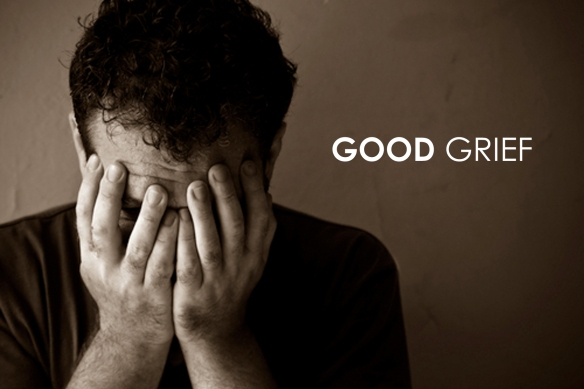“Brothers and sisters, we do not want you to be uninformed about those who sleep in death, so that you do not grieve like the rest of mankind, who have no hope.“
– 1 Thessalonians 4:13
I get weary at nearly every funeral of the counsel people try to give to the family of the deceased. Many well-intentioned friends and relatives quote scriptures about Heaven and say things like “they’re in a better place.” It’s not that these quotes are incorrect, it’s that they are almost universally ill-delivered. I always know it’s grating on the grieving individual when they quietly but consistently respond to each new piece of advice with “I know.”
Translation to the “I know” response? Internally, that person is thinking something like, “Yes, I too have heard, quoted, and memorized every single verse you’re giving me now. I know that I’ll see my Dad/Mom/kid/friend/etc. in Heaven one day, and that right now they are in Jesus’ presence enjoying perfect rest. But I was just having lunch with them a week ago and now they’re gone… I can’t talk to them, laugh with them, or turn to them when I need them anymore. And all of your ‘advice’ feels a lot like you’re telling me to suck it up and get over the fact that my ______ just died and I feel like I’m burying a piece of my soul with them.”
I’ve even heard some suggest that we should not grieve at all for the loss of a loved one because they’re “in God’s hands now” and we’ll see them again.
This may be a revolutionary thought for some, but grief is a good thing.
Jesus grieved at the loss of a friend, Lazarus. Psalm 34 tells us that God is “near to the broken-hearted.” And even the above passage from 1 Thes. encourages us who are in Christ, that “we do not grieve like… those who have no hope.” But we do grieve. And grief is good.
Grief is accepting and acknowledging that we’ve suffered a loss.
It’s giving that loss it’s proper place of honor, and it is also an important piece to the healing process in our own hearts. Not grieving a loved one who’s passed is a lot like getting a serious wound and not treating it – healing is slow, if not unlikely, and infection of the wound is almost guaranteed.
I’ve seen many Christ-followers carry an infected heart because they were taught to “not grieve” and the hurt of losing someone has left them with an aching, wounded soul. They often turn that blame straight to God for taking their loved one instead of properly grieving and leaning on God’s grace for hope and healing.
Grief is also the price we all inevitably pay for love.
Every person you and I love (including ourselves) will one day face death. And the greater the love for that person, the greater the grief. Grieving that person’s loss is acknowledging how loved they were. In an unexpected way, grief is also a sort of celebration that a person was well loved, and greatly missed – even if Heaven is a future hope. It’s healthy to remember that.
So not grieving them is almost like denying that they were loved at all.
There comes a point when we must all move passed the grief, of course – accept a new normal without that loved one in our lives, remember and celebrate the life that we enjoyed with them, live the rest of our days in a way that person would be proud of us, and look expectantly to the day we are all reunited in God’s big family.
Yes, we should encourage people with the promises of God in His word.
But more than anything, a grieving person needs to see us live God’s word out to them in their loss, not just heard quoted at them from a safe distance. Instead of just quoting a verse at them, get close to them. Mourn with them. Be the promise that God gave to those who suffer loss. Be near the broken-hearted. Like Jesus did.
Blessings,
Pastor John



